The dirtiest places in a living room – and the ways to ensure they stay spick-and-span
Find out where the muck likes to lurk in a living room and how to keep the room’s dirtiest places pristine

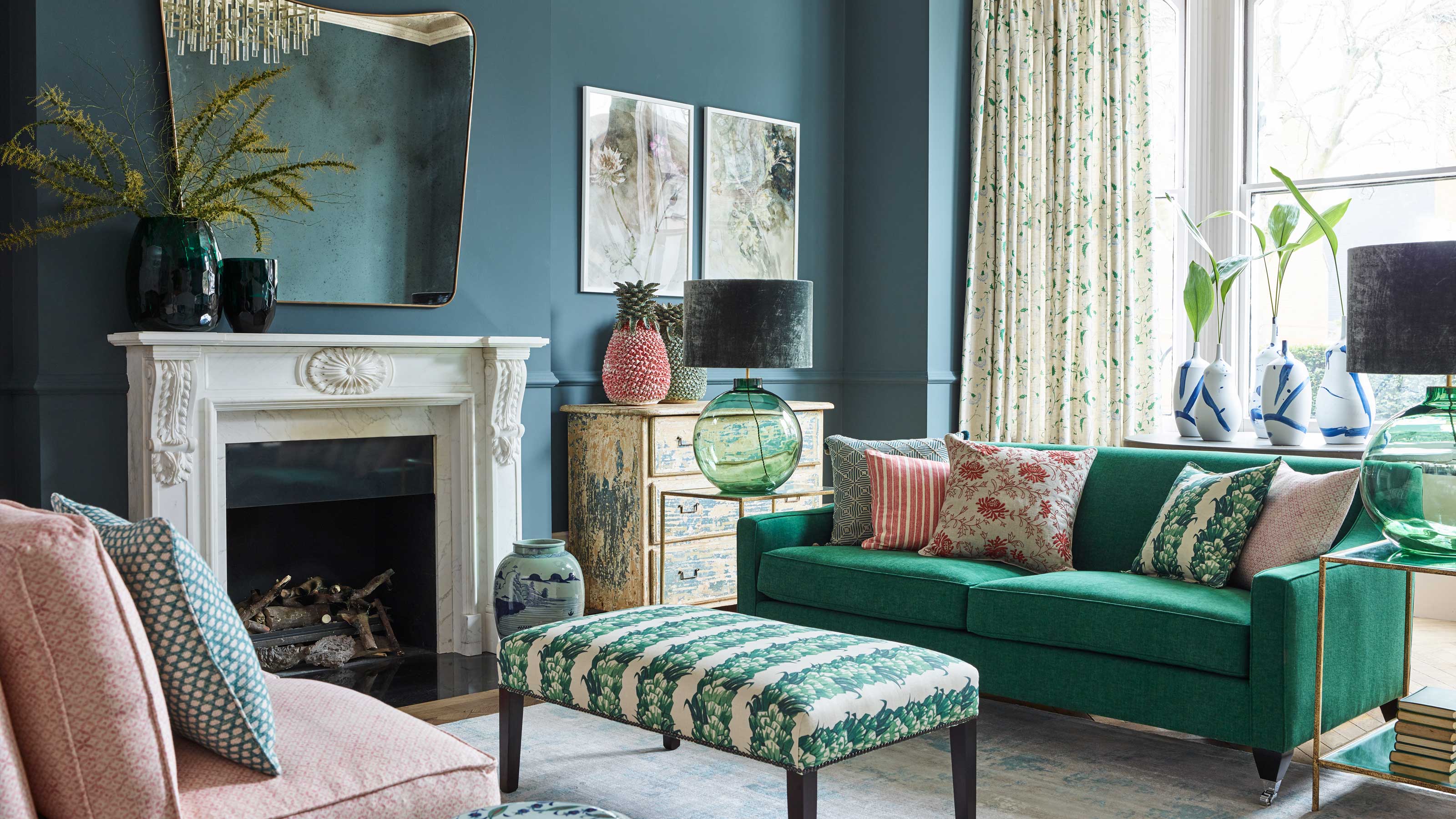
Design expertise in your inbox – from inspiring decorating ideas and beautiful celebrity homes to practical gardening advice and shopping round-ups.
You are now subscribed
Your newsletter sign-up was successful
Want to add more newsletters?

Twice a week
Homes&Gardens
The ultimate interior design resource from the world's leading experts - discover inspiring decorating ideas, color scheming know-how, garden inspiration and shopping expertise.

Once a week
In The Loop from Next In Design
Members of the Next in Design Circle will receive In the Loop, our weekly email filled with trade news, names to know and spotlight moments. Together we’re building a brighter design future.

Twice a week
Cucina
Whether you’re passionate about hosting exquisite dinners, experimenting with culinary trends, or perfecting your kitchen's design with timeless elegance and innovative functionality, this newsletter is here to inspire
Daily use by the whole family and guests means the living room demands a big share of cleaning efforts to keep it pristine. Furniture, flooring, drapery, and all the surfaces we touch in everyday life can gather debris plus unseen but unhealthy germs.
Cleaning a living room efficiently isn’t a challenge with a good routine. Even better, though, is knowing which are the dirtiest places in the living room. Armed with this information, the task can be more effective.
Cleaning professionals are the experts on where the dirt is worst and we asked them to reveal where it collects. They’ve provided their top advice on how to deal with it, too.
Dirt traps in the living room
Useful cleaning tips can make cleaning the living room a more efficient process. But it also pays to know where the dirt and germs accumulate. Understand which are the dirtiest places in the living room and ensuring your interior is hygienic as well as good-looking is easier. This is the lowdown from the professionals.
1. Carpet or rug
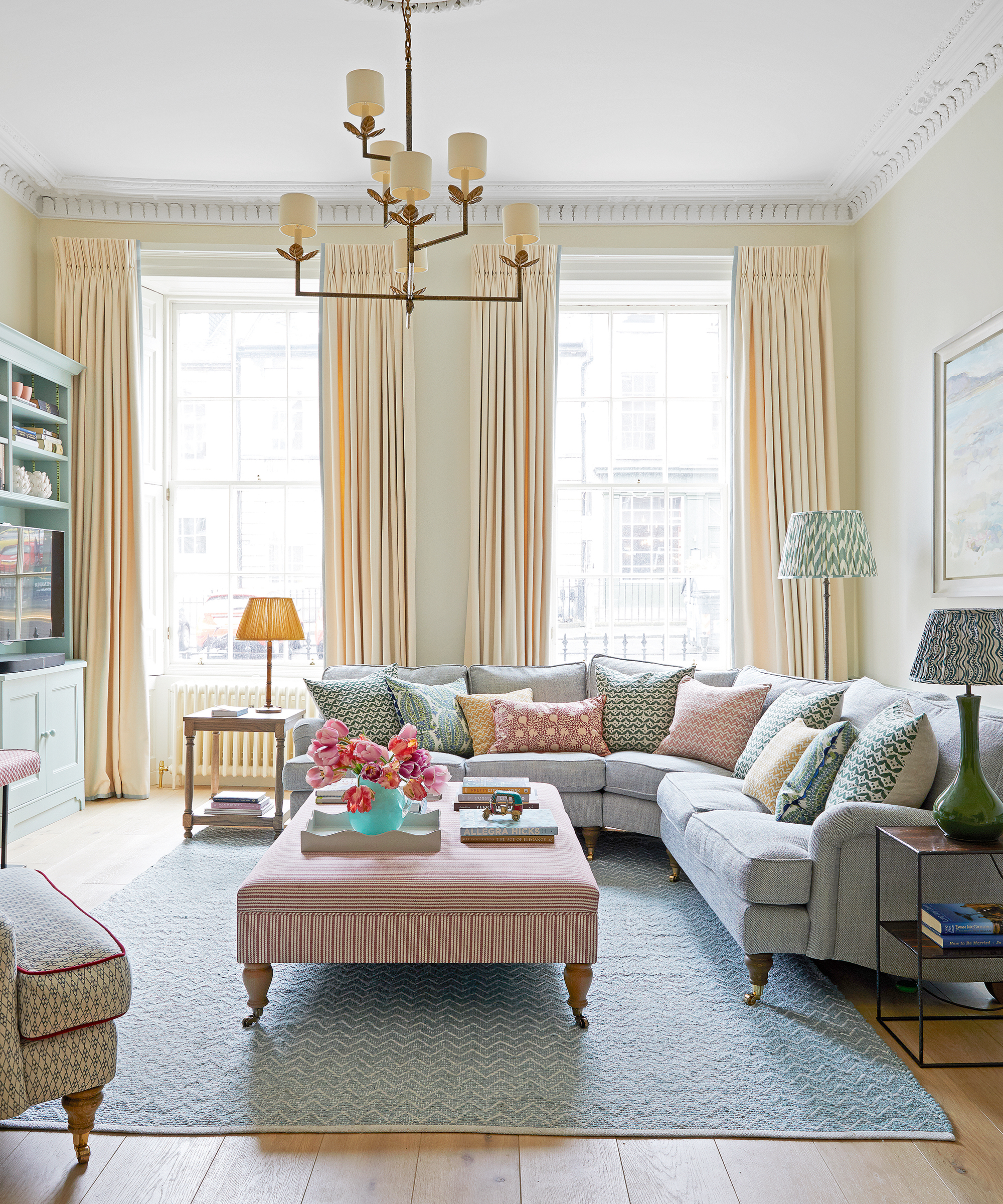
While they add softness and warmth under foot, both carpets and rugs are places where dirt can linger. ‘Carpets and rugs are notorious for trapping dirt, dust, pet hair, and food crumbs,’ says Alicia Sokolowski, president and co-CEO at the eco-friendly cleaning company AspenClean. ‘They have a high surface area that collects debris, making them one of the dirtiest areas. People often walk on them with shoes, bringing in dirt from outside.’
To tackle these dirt hot spots, including cleaning an area rug, Alicia recommends cleaning with baking soda, and using vinegar as well as the best vacuum. ‘Sprinkle baking soda liberally over the carpet or rug. Let it sit for about 15 to 30 minutes to absorb odors and help loosen dirt,’ she says.
You could make up a vinegar solution using white vinegar for cleaning, at Walmart. ‘Mix equal parts of water and white vinegar in a spray bottle,’ she advises. ‘Spray the solution on stains or high-traffic areas, then blot with a clean cloth.’
Design expertise in your inbox – from inspiring decorating ideas and beautiful celebrity homes to practical gardening advice and shopping round-ups.
Finish by vacuuming. ‘After treating with baking soda and vinegar, vacuum the carpet thoroughly. Use a vacuum cleaner with a HEPA filter to trap dust and allergens effectively,’ she says.

Alicia is the president and co-CEO at AspenClean. With over 17 years of experience, Alicia specializes in creating healthier, green alternatives to chemical-based cleaning products and services and demonstrating how it can be easy to go green when cleaning.
2. Furniture
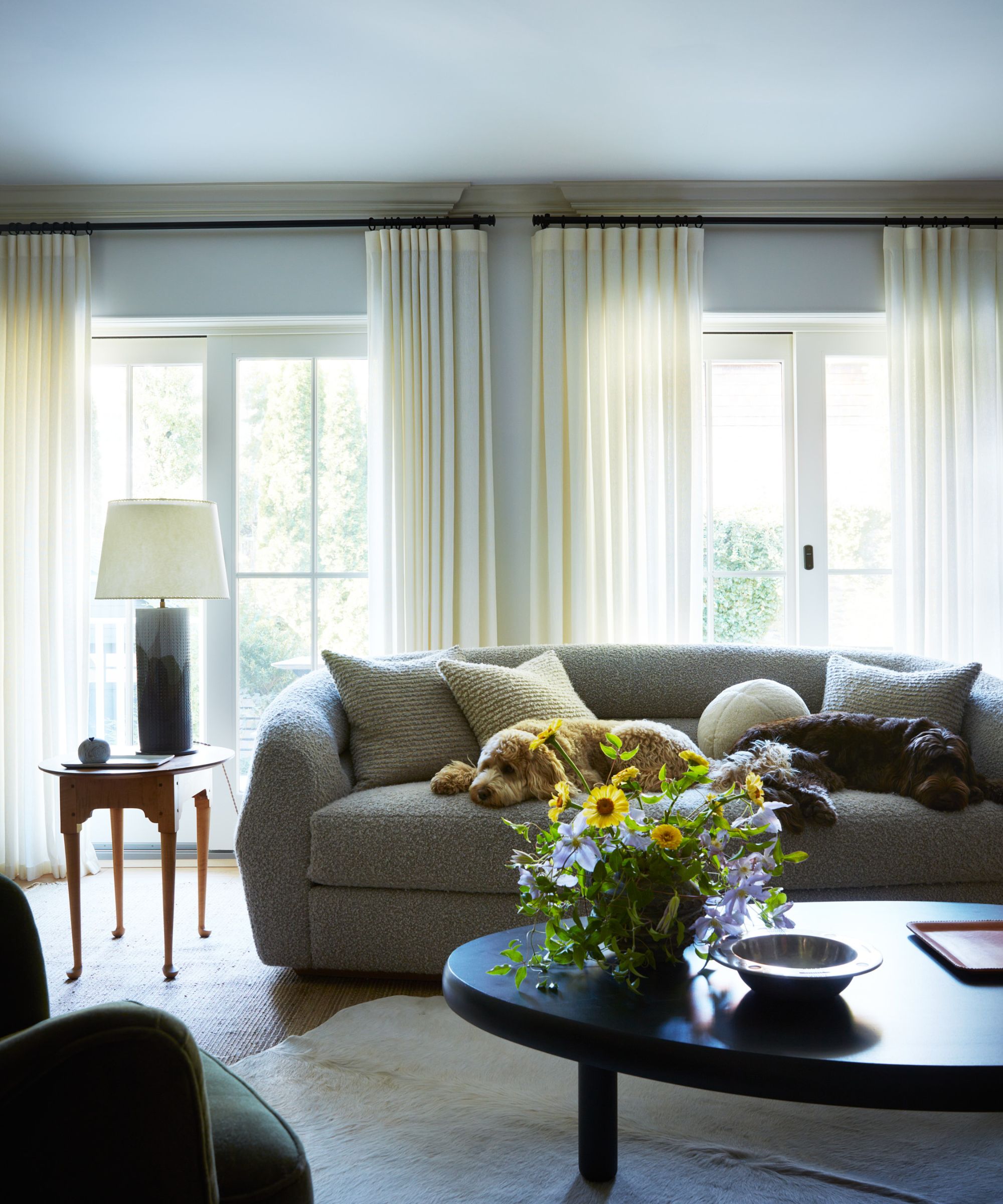
Whatever it is made from, living room furniture gets dirty. ‘Upholstered furniture can collect dust, pet hair, and crumbs, while wooden furniture surfaces may accumulate dust,’ says Marla Mock, president of Molly Maid, a Neighborly company.
The way to deal with these pieces depends on their material and care requirements. ‘For wooden furniture, use a damp cloth to trap and remove dust,’ she says. Cleaning upholstered furniture needs a different approach. ‘Upholstered furniture may require vacuuming and laundering or dry cleaning of removable covers,’ she says. Bear in mind that if your couch is made from leather, you should follow the steps for cleaning a leather sofa instead.
Upholstered furniture may also absorb spills and strains, which are difficult to remove if not addressed promptly, says Alicia Sokolowski. For a fabric spot cleaner, she suggests, ‘Mix equal parts water and natural dish soap. Test a small, inconspicuous area first to ensure it doesn’t damage the fabric.’
White vinegar can also get rid of odors. ‘Lightly spray a mixture of water and white vinegar on the fabric and let it air dry,’ she says.
3. Remote controls and electronics
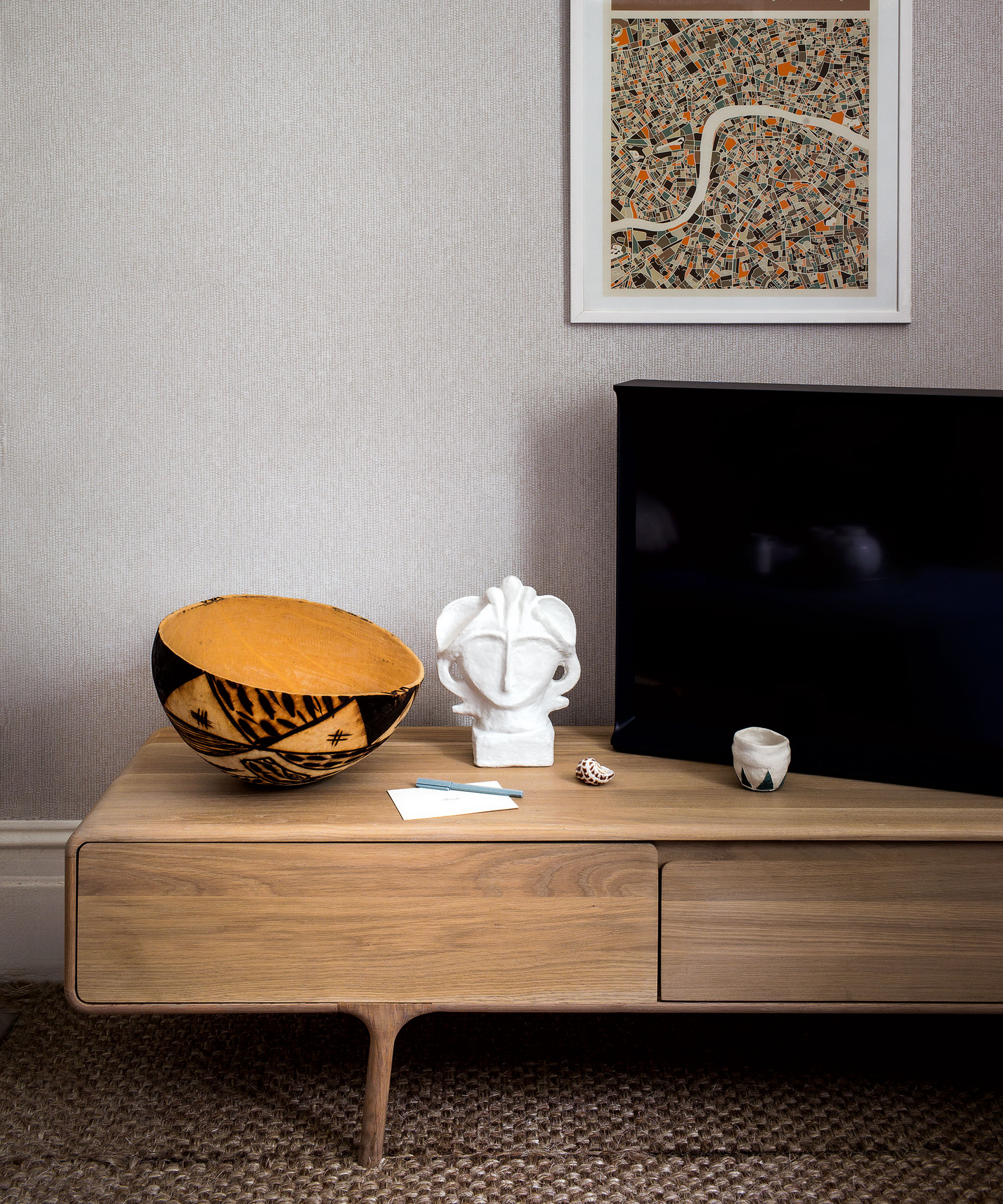
Watch out for the areas that aren’t noticeably dirty in the living room – but gather grime and germs all the same. ‘Remote controls, stereo systems, and television boxes can harbor dust and bacteria as they are frequently touched but often overlooked during cleaning,’ says Marla Mock.
Clean a TV screen with care to avoid harm. For remote controls, you could use a natural all-purpose cleaner, suggests Alicia Sokolowski. ‘Spray onto a clean microfiber and gently wipe down remote controls and electronics. Ensure they are unplugged or have their batteries removed before cleaning.’
A damp disinfecting cleaning wipe, at Amazon, is an alternative, Marla suggests. ‘Use cleaners designed for electronics to prevent scratches,’ she cautions.
4. Ceiling fans, light fixtures and HVAC vents
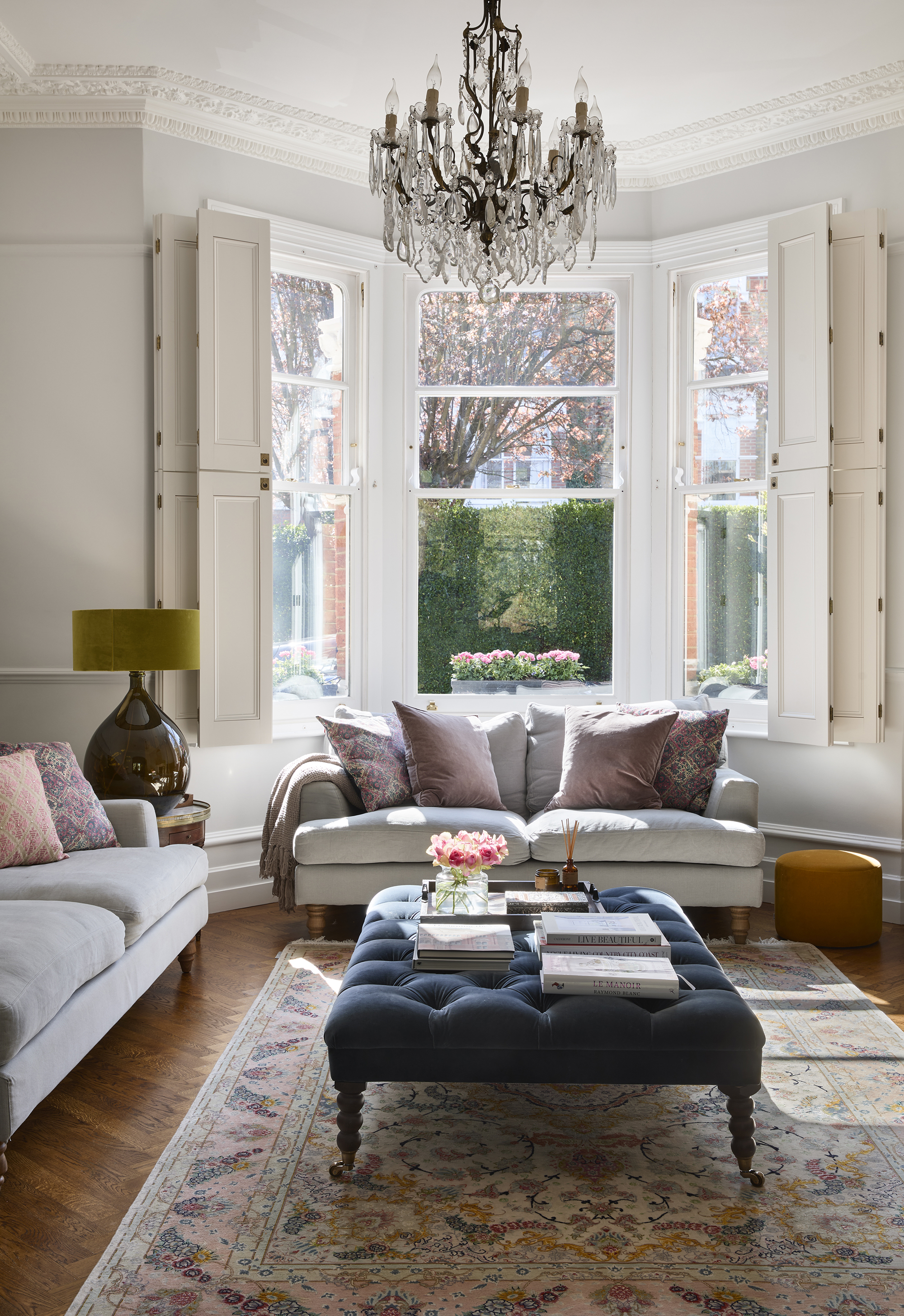
Dirt builds up at different levels in a living room. ‘When we think of cleaning, we often think about looking down at the horizontal surfaces in front of us,’ says Shari Cedar, vice president and co-owner of AK Building Services, a commercial janitorial services provider in Florida. ‘Most forget to look up. Your light fixtures and ceiling fans accumulate dust. This can dull the light coming from your fixtures.’ Don’t neglect HVAC vents, either, says Marla Mock.
Get equipped to clean these dirty areas easily. ‘Use a long-handled duster or a specialty ceiling fan duster to reach and clean these high areas,’ says Marla. ‘You can also vacuum or wipe them with a damp cloth.’
5. Windowsills and curtains
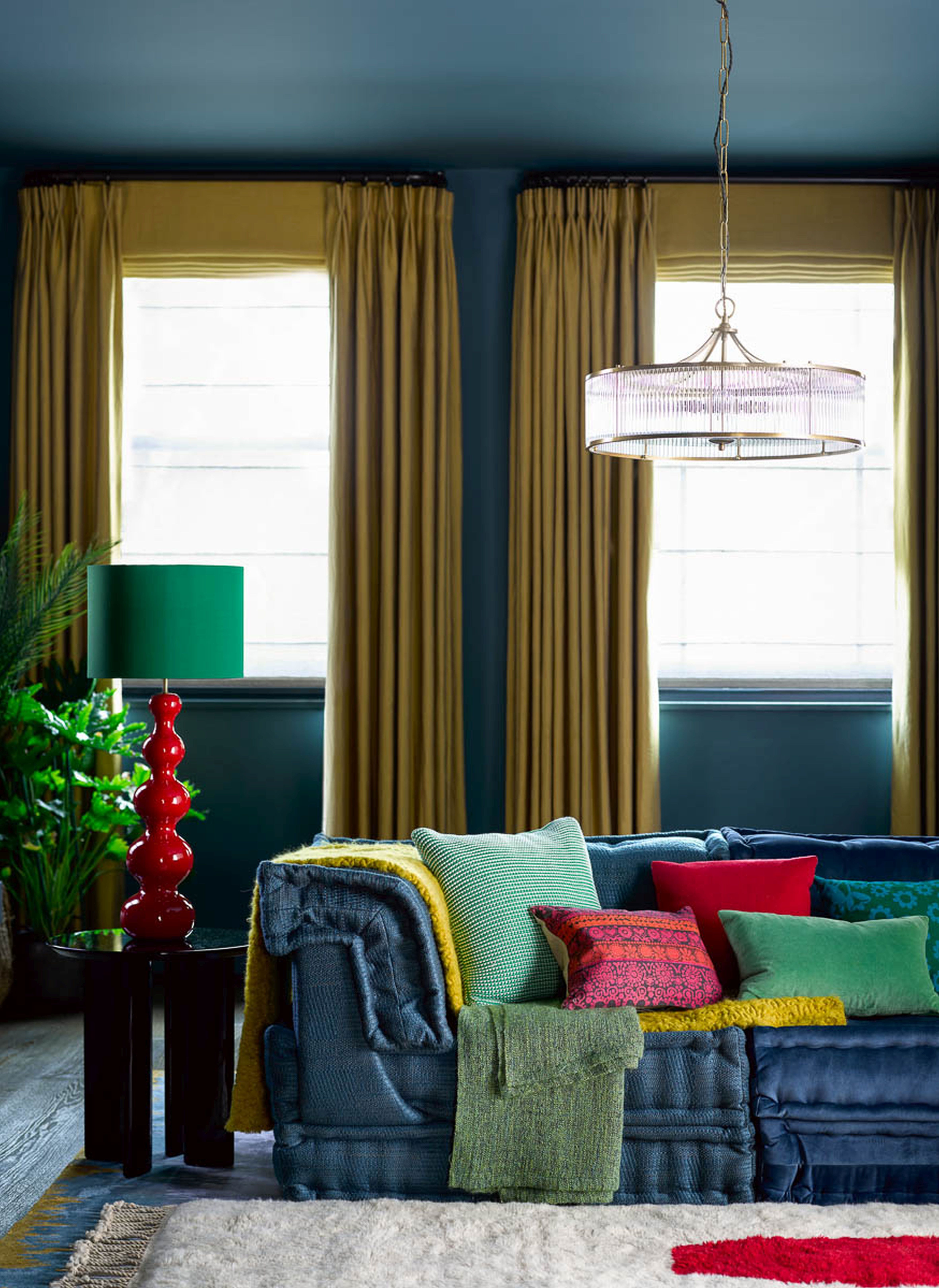
The window area is one of the living room’s dirtiest places. ‘Windowsills can collect dust and dirt from outside, and curtains can trap airborne particles,’ explains Alicia Sokolowski. ‘Over time, these areas can become coated with dust and require regular cleaning. If windows are frequently opened, they can also let in more outdoor contaminants.’
To keep them grime-free? ‘Wipe down windowsills regularly with a microfiber cloth damped with natural all-purpose cleaner to remove dust and dirt,’ says Alicia. The way to clean curtains depends on their fabric. ‘Check the care instructions on your curtains,’ she says. ‘Many can be machine-washed in cold water and natural laundry detergent. Air-dry them to prevent shrinking.’
6. Baseboards and floors
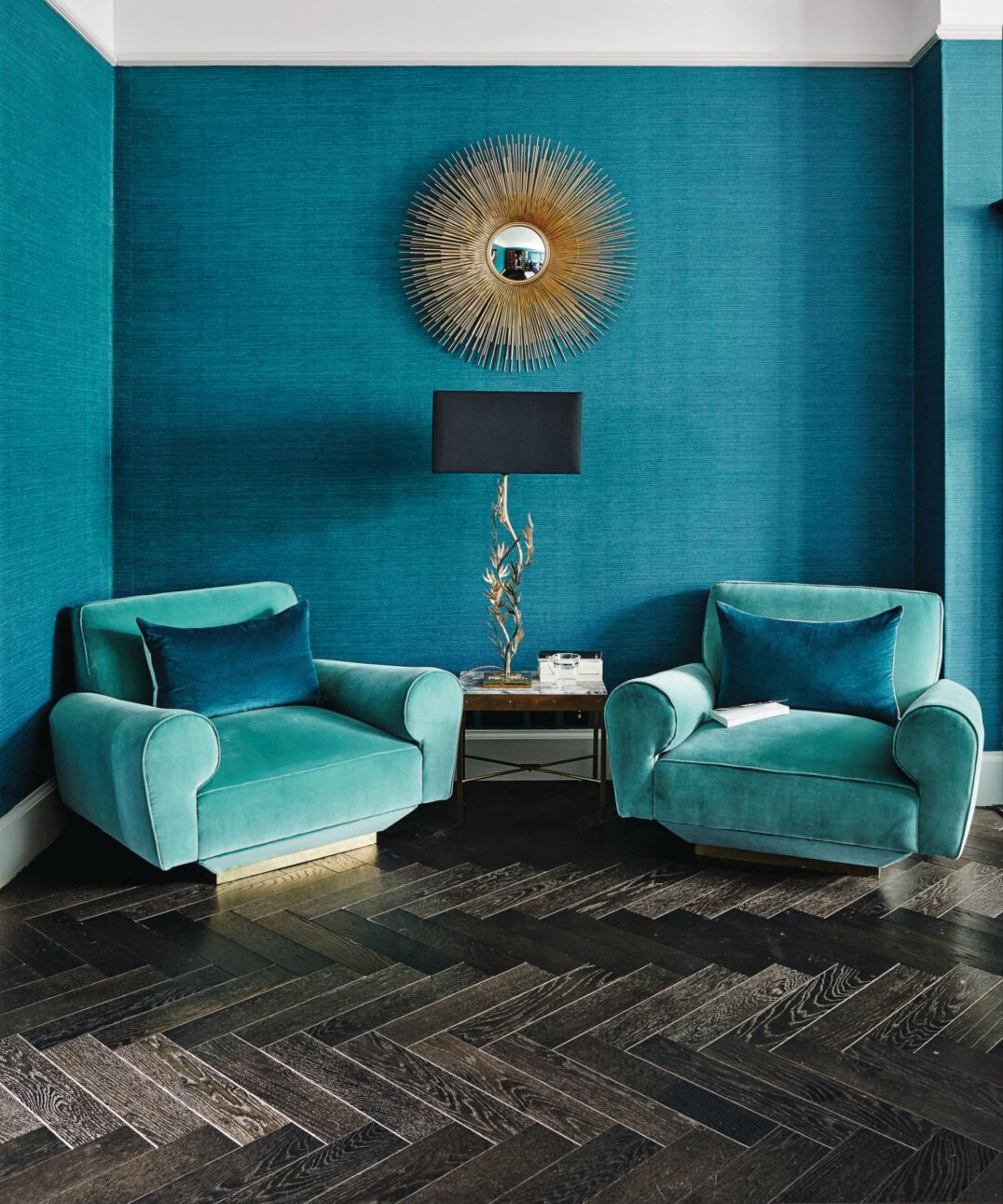
You have to look up to find some of the grimiest areas of a living room, but you should look down, too. Floors that don’t have carpet also accumulate dirt, and baseboards get grubby as well.
‘Dust baseboards regularly and clean floors according to their material, whether it's hardwood, or tile,’ says Marla Mock.
FAQs
How do you clean a dirty living room?
Work from the top down to clean a dirty living room, otherwise, you risk making the surfaces you’ve already worked on dusty again. Dust surfaces and furniture, then clean the windows, window treatments, and clean mirrors. Vacuum upholstered seating. Clean the floors after other parts of the room.
Some parts of the living room are liable to get dirtier than others, and they might not be spaces that you notice becoming grimy. Nevertheless, to keep the room a healthy and stylish space they need addressing. Routine is all with this busy room. ‘Cleaning a little bit each day or week can prevent buildup and make the task less daunting,’ advises Alicia Sokolowski.

Sarah is a freelance journalist and editor. Previously executive editor of Ideal Home, she’s specialized in interiors, property and gardens for over 20 years, and covers interior design, house design, gardens, and cleaning and organizing a home for Homes & Gardens. She’s written for websites, including Houzz, Channel 4’s flagship website, 4Homes, and Future’s T3; national newspapers, including The Guardian; and magazines including Future’s Country Homes & Interiors, Homebuilding & Renovating, Period Living, and Style at Home, as well as House Beautiful, Good Homes, Grand Designs, Homes & Antiques, LandLove and The English Home among others. It’s no big surprise that she likes to put what she writes about into practice, and is a serial house renovator.